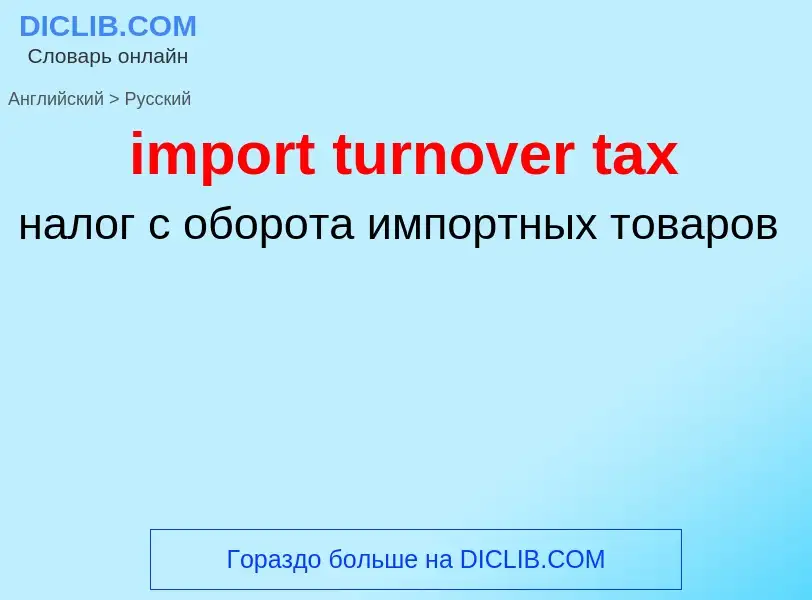Tradução e análise de palavras por inteligência artificial ChatGPT
Nesta página você pode obter uma análise detalhada de uma palavra ou frase, produzida usando a melhor tecnologia de inteligência artificial até o momento:
- como a palavra é usada
- frequência de uso
- é usado com mais frequência na fala oral ou escrita
- opções de tradução de palavras
- exemplos de uso (várias frases com tradução)
- etimologia
import turnover tax - tradução para russo
Definição
1) Ввоз в страну иностранных товаров из-за границы (противоп.: экспорт).
2) Общее количество или общая стоимость ввозимых из-за границы товаров.
Wikipédia
A tariff is a tax imposed by the government of a country or by a supranational union on imports or exports of goods. Besides being a source of revenue for the government, import duties can also be a form of regulation of foreign trade and policy that taxes foreign products to encourage or safeguard domestic industry. Protective tariffs are among the most widely used instruments of protectionism, along with import quotas and export quotas and other non-tariff barriers to trade.
Tariffs can be fixed (a constant sum per unit of imported goods or a percentage of the price) or variable (the amount varies according to the price). Taxing imports means people are less likely to buy them as they become more expensive. The intention is that they buy local products instead, boosting their country's economy. Tariffs therefore provide an incentive to develop production and replace imports with domestic products. Tariffs are meant to reduce pressure from foreign competition and reduce the trade deficit. They have historically been justified as a means to protect infant industries and to allow import substitution industrialization. Tariffs may also be used to rectify artificially low prices for certain imported goods, due to 'dumping', export subsidies or currency manipulation.
There is near unanimous consensus among economists that tariffs have a negative effect on economic growth and economic welfare, while free trade and the reduction of trade barriers has a positive effect on economic growth. Although trade liberalization can sometimes result in large and unequally distributed losses and gains, and can, in the short run, cause significant economic dislocation of workers in import-competing sectors, free trade has advantages of lowering costs of goods and services for both producers and consumers.

.png?width=200)
.png?width=200)
.png?width=200)
.png?width=200)
.png?width=200)
![url=https://archive.org/details/microeconomics00krug}}</ref> For a more detailed analysis of this diagram, see [[Free trade#Economics]]. url=https://archive.org/details/microeconomics00krug}}</ref> For a more detailed analysis of this diagram, see [[Free trade#Economics]].](https://commons.wikimedia.org/wiki/Special:FilePath/Effect of Import Tariff - v1.png?width=200)
.gif?width=200)
 and Trade Policies.png?width=200)
